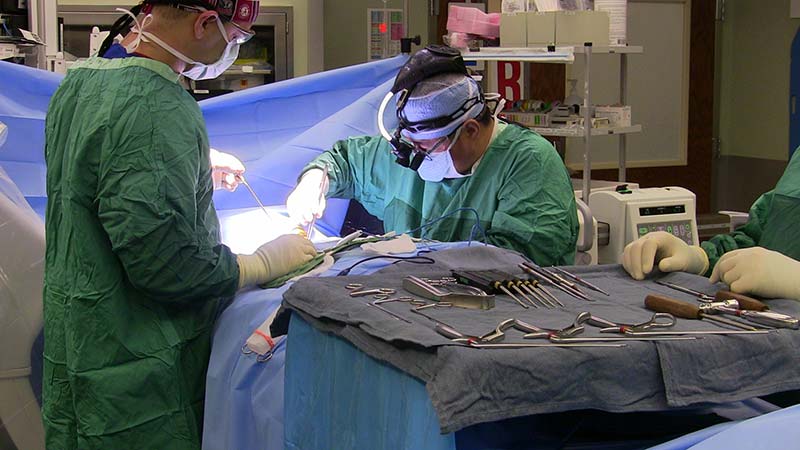Who is Helping my Surgeon?
As a patient, when you go into an orthopaedic surgeon’s office for your appointment, it is usually not the surgeon that first greets you and brings you into the examination room. You are often asked a barrage of questions about why you have come in and often are asked about your medical history. So who is this person that is asking you all of these questions and what are their credentials?
There are many different allied health providers who work with orthopaedic surgeons. To help you understand some of the differences, I am going to start with separating these individuals into two categories: Mid-level practitioner and Support Staff. Mid-level practitioners are Physician Assistants (PA-C) and Nurse Practitioners (ARNP). These providers work under a physician and often seen patient’s for routine follow-up visits, order/review diagnostic tests, prescribe medications, and recommend various forms of treatment. The PA and ARNP professions are licensed by the State.
The second category I mentioned is support staff. This includes a whole host of different allied health providers. These include Orthopaedic Assistants (OA-C), Surgical Assistants (CSA, CSFA, SA-C), Athletic Trainers (ATC), Nurses (LPN, RN), Orthopaedic Technologists (OTC), and Medical Assistants (MA). Out of these professions, Athletic Trainers and Nurses are licensed in Florida and most other states. Orthopaedic Assistants (also known as Orthopaedic Physician’s Assistants) are licensed in some areas of the country, but not Florida. Surgical Assistants are licensed in a handful of states. Licensure defines what a particular professional is able to do. Those that are not licensed fall under different state laws in which the supervising physician is responsible for what activities they may perform. In general these individuals provide support to the physician to help with all aspects of patient care. Since these individuals are the assistant of the physician, many patients commonly refer to them as “Physician Assistant”. From a legal standpoint, this is not technically correct.
Education, training and overall level of knowledge for all of these professions does vary considerably. The only profession listed that offers comphrensive training, strictly in orthopaedics is that of Orthopaedic Assistants. These individuals are trained to work with orthopaedic surgeons in both the clinical setting and in the hospital. Many of the other professionals mentioned learn orthopaedics while working on the job after they complete formal schooling.
So the big question that is often asked is “who is the best assistant and most qualified for an orthopaedic surgeon”? There is no one correct answer to this question. Most physicians desire a well-trained, competent individual who can provide superior patient care. As a patient, if you broke your arm, which of the above named allied health professionals would you want to place you into a cast? To most, the answer is “it does not matter, provided that individual has the appropriate training, experience, and really knows what they are doing”. A good personality also goes along with that answer!
Next time you are go to see your orthopaedic surgeon, I encourage you to ask the allied health professional who is assisting you about his/her credentials. As a part of the office team, it is often this individual that helps direct your visit with the physician and provides you with patient education, information, and helps enhance your overall experience.
Last modified: March 9, 2018










